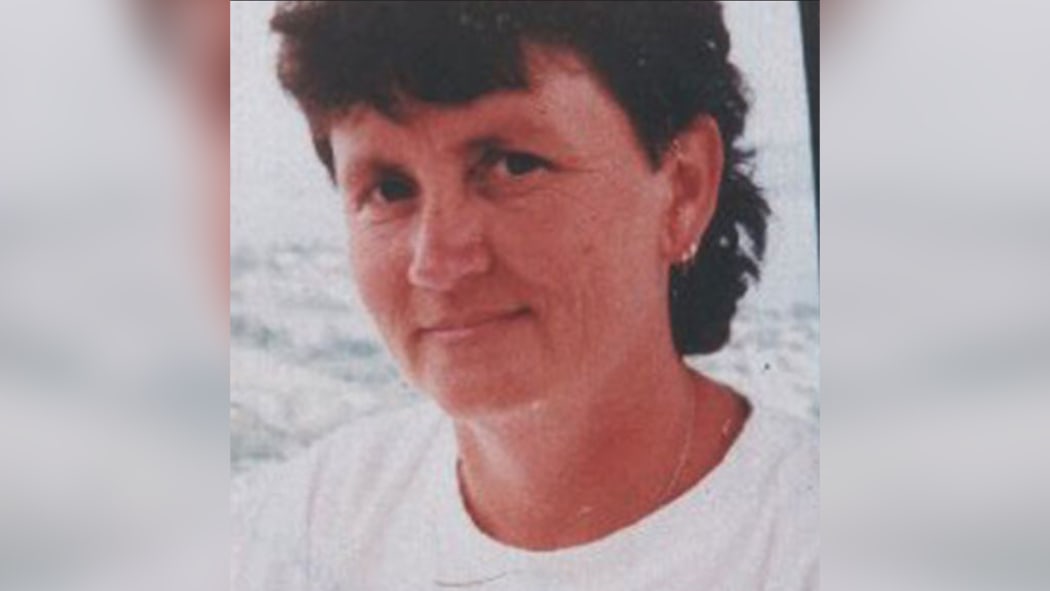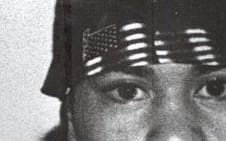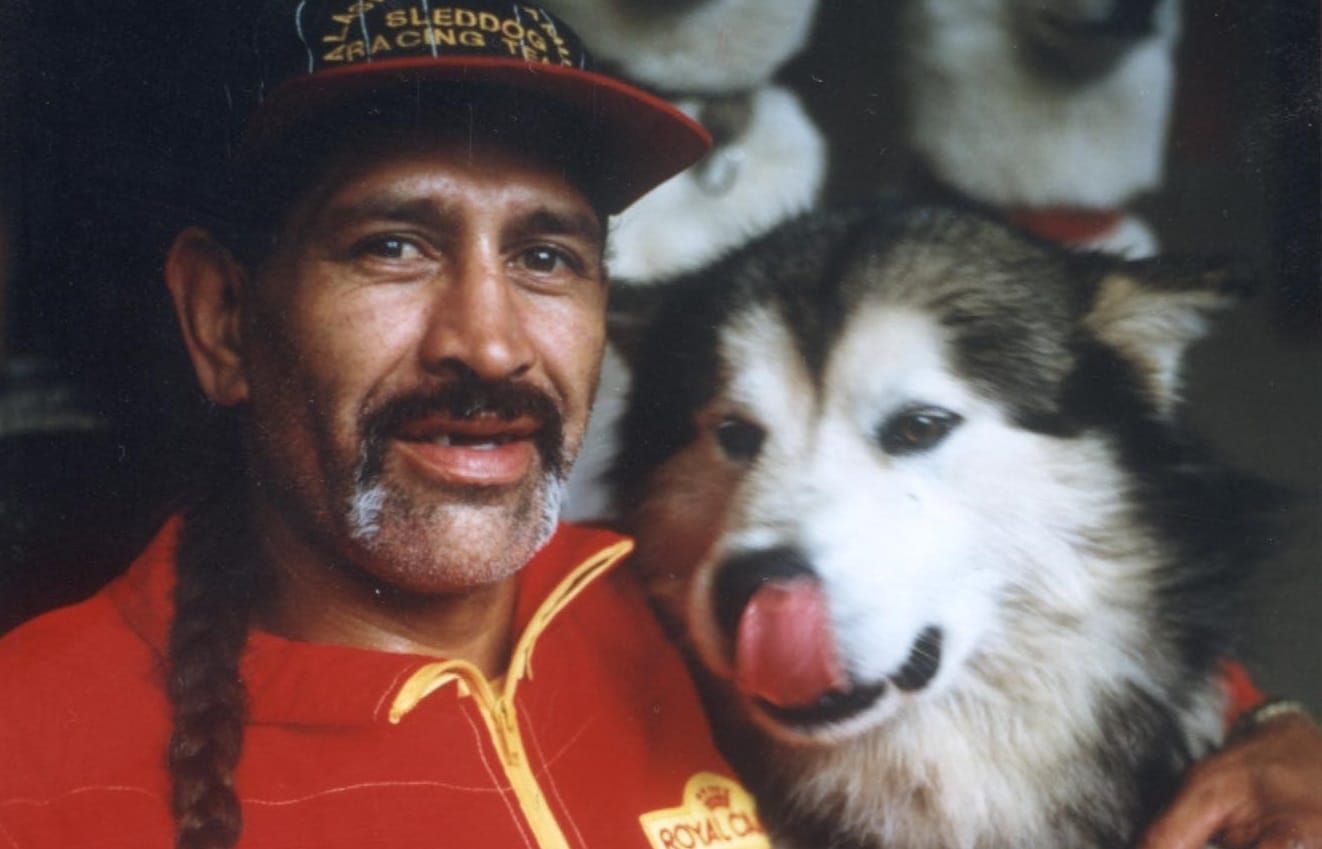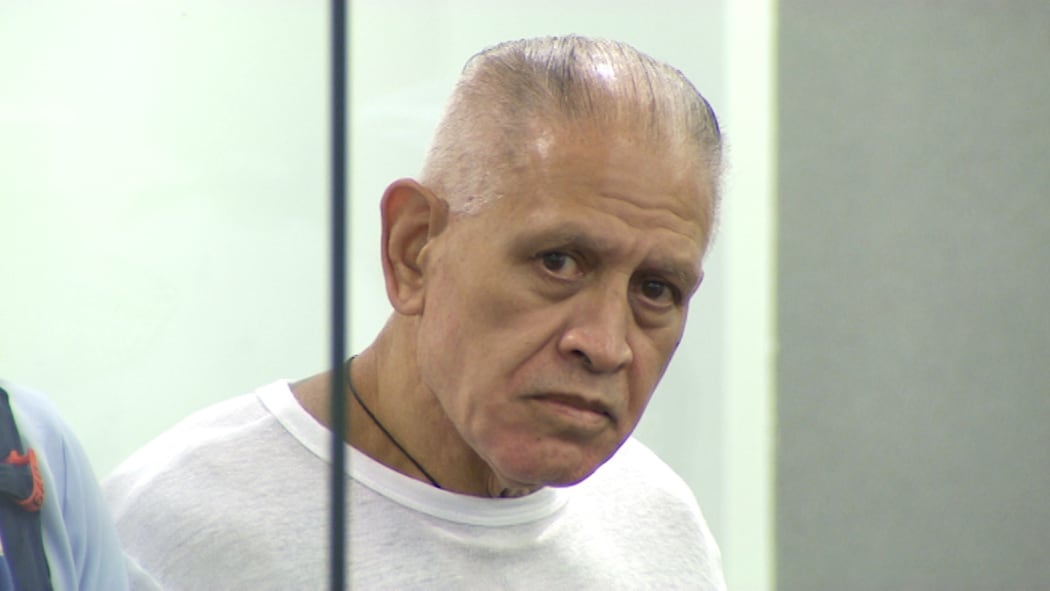Nearly three decades after Susan Burdett was murdered, her case is finally closed. Anneke Smith traces one of New Zealand's most epic justice journeys, that ensnared a young car thief who was wrongly convicted for her murder, lured in an investigator who campaigned for his innocence, and circled rapist Malcolm Rewa, who avoided responsibility for her death until today.

Susan Burdett was 39 when she was killed in 1992. Today Malcolm Rewa was finally convicted of her murder. Photo: Supplied
Leaning on a walking stick, Malcolm Rewa struggled into the dock this week. You could have mistaken his crooked frame for frailty but his torso was flanked by a pair of muscular arms, tattoos swirling over the left and peeking out from the sleeve of his right. His dark eyes darted around the courtroom. He was here last century, twice, and was back as the murder accused for a third time. Only this time he was found guilty; marking the end of one of the longest-running cases in New Zealand history.
It began on 25 March 1992 with the discovery of Susan Burdett's body. It was a Wednesday and her workmates were concerned when she didn't show up for work. Steven Dawson - who usually had tea with Burdett and his wife on a Wednesday - offered to go to her Pah Road house, in South Auckland's Papatoetoe, and check on her. He found the blinds on her bedroom window shut, and when he tried the handle on the front door it was open.
Dawson was composed in court last week as he recounted what he found. It was clear he'd told his story many times before. Burdett, 39, was lying face-up on her waterbed, her legs crossed and dangling off the side. The upper half of her body was wrapped in a duvet and a wooden baseball bat sat on a crochet blanket next to her. Dawson didn't touch her; it was clear she was dead.
It was Detective Senior Sergeant Michelle Burke who peeled back the duvet, revealing the extent of Burdett's injuries. The bed linen was soaked with blood and brain matter protruded from her skull. A pathologist later concluded she had been struck at least five times on the head with a blunt object. Her injuries suggested she had been hit with the type of force usually seen in car crashes.
The courtroom was silent, bar the steady tick of a clock, as footage of the crime scene captured by a handheld police video camera was played for the jury. Rewa didn't look up once. Naked from the waist down, Burdett's blood-stained bra was over her eyes. A handful of plush teddies sat on her bedside table, one of many ordinary details juxtaposed against the grim scene.
***

Teina Pora was a teenager when he was charged with Susan Burdett's murder. Photo: FILE
A year to the day after Burdett's death Teina Pora, a 17-year-old with foetal alcohol spectrum disorder, was arrested. A car thief well-known to police, he had been brought into a local station to speak to officers about breaking into vehicles. By now police were offering a $20,000 reward for information that led to an arrest over Burdett's killing, and towards the end of Pora's interview, he asked if police had solved the case. When they said they hadn't, he told officers he knew who was responsible.

Investigator Tim McKinnel helped clear Teina Pora. Photo: RNZ / Luke McPake
Over the next four days, Pora was interviewed at length and without a lawyer, his story changing when police couldn't corroborate details. At first he said he had knowledge about the crime, but later said he was involved with the burglary, rape and murder. He was driven to Pah Road to identify Burdett's house, which sat behind a tall hedge, and couldn't pick it out, directing the police away from her home. He gave a blood sample and this excluded him from being the person responsible for the semen found in Burdett's body. Still, he was charged with her rape and murder.
He pleaded not guilty, but at his 1994 trial, the Crown argued his confessions meant he had been there at her home, and the jury agreed. His case went to the Court of Appeal, and it was decided he should go in front of another jury, but at his 2000 retrial he was found guilty again.
Pora spent more than two decades in prison. But police officer-turned-private investigator Tim McKinnel led efforts to clear his name, and in 2015, the Privy Council quashed his convictions. In 2017, he received more than $3.5 million in compensation. It closed one chapter of the Burdett case and reopened another, featuring Rewa front and centre.
***

Malcolm Rewa was strong - he ran his huskies on Mangere Mountain in the mornings. Photo: Supplied
Malcolm Rewa has already been convicted of raping 25 women. The attacks were all similar: his victims would wake to him standing over their bed or they would feel his hand clamp over their mouth after he crept up on them in their own homes. They would fight, pushing and pulling as he hissed at them to shut up and told them he'd kill them if they didn't. Rewa was strong - he ran his huskies on Mangere Mountain in the mornings when it was cool. (Parallels have since been made between the control and dominance he exercised with his dogs and that which he inflicted on his victims.)
He always used violence and threats of violence to subdue his victims before blindfolding and gagging them. He then moved them to a bed and positioned them so their legs were hanging off the side. He stripped them, placing bed clothes over the upper half of their bodies, before raping them. Afterwards, he rummaged through closets and drawers looking for things to steal. Sometimes he returned to rape them again.
Semen was found inside Burdett's body and when Rewa was arrested in 1996, over other rapes, police found his DNA matched the semen. He was charged with the rape and murder of Burdett, along with a series of other rapes, and tried between March and May of 1998. The Crown argued he and Pora had attacked Burdett together. Rewa was found guilty on other rape charges, but the jury was unable to agree on whether he raped and murdered Burdett.
At a retrial in December 1998, he was convicted of raping Burdett but again the jury was unable to agree on whether he murdered her. The solicitor-general imposed a stay of proceedings against further prosecution, saying it was only under special circumstances that Rewa could face a third trial.
After Pora's convictions were quashed in 2015, a legal battle over the stay ensued and in 2018 it was lifted. Last week, 20 years after his last trial for Burdett's murder, Rewa walked into the High Court again.
***

Malcolm Rewa spent much of his third trial with his head bowed, reading and writing. Photo: POOL
Rewa has always maintained his semen was found inside Burdett because he was having a secret, sexual relationship with her, and during this third trial he once more described a romance. He said they met at her work, Nuplex, and that he chatted to her when they bumped into one another around South Auckland.
He said Burdett started buying ecstasy pills from him when she was having marital problems, and that they started having sex in late 1991, at his house, in his truck and under the trig station at the top of Mangere Mountain.
In his version of events, on 23 March 1992 Burdett showed up at his house looking for drugs he promised he'd source for her. He didn't have what she wanted so they halved a pill of ecstasy before having sex. She then left his house and it wasn't until days later he found out she had been killed.
But the recollections of people who knew Burdett made his story sound implausible. They described her as neat and tidy, and said she kept a regular routine. On Mondays she always baked and cleaned the house before going to the Manukau Super Strike to play ten pin bowling with her team, The Ratbags. Friends told the court she had said she had bad luck in love; that men she liked weren't interested in her and those she didn't like, were. Would this woman really have been interested in a senior member of the Highway 61 gang?
And Rewa became entangled in his own web of lies when Crown prosecutor Gareth Kayes cross-examined him. In 1998 he said he and Burdett had sex in the evenings, but now he was sure it was in the mornings.
He also told the court he never went to Burdett's home because his in-laws lived around the corner and he drove a distinct orange American truck with the words 'Lone Wolf' across the front. Kayes asked him how he drove the truck at that time, given he didn't yet own it. Documents showed he traded his Harley Davidson motorbike and cash for the truck in 1995 - three years after Burdett was killed. Asked if he'd told another lie, Rewa said it wasn't a lie, that he was just mistaken.
Perhaps the most peculiar detail of Rewa's story was an anecdote about toilet paper. He told the court Burdett had gone into his bathroom after the pair had sex the night she died. He said she emerged and mentioned the three-ply, scented toilet paper his wife had bought. Kayes was quick to point out that this detail was new and possibly an attempt at explaining why Rewa's semen had been found inside Burdett's body but not on any of her clothing. An expert had earlier testified that if Burdett had dressed and taken herself to tenpin bowling after sex, it would be expected that semen would be found in her underwear or on her jeans. It wasn't. Instead, the clothes she bowled in were found neatly placed in her washing basket, with no trace of Rewa's DNA.
Rewa's defence put forward another, unlikely, suspect; Burdett's son, Dallas McKay. McKay drove down from Whangarei to give evidence in the first week of the trial. He told the court about finding - and then losing - his mother. Burdett had McKay when she was 16 and he was fostered by his paternal grandparents. He grew up thinking his father was his brother, and didn't meet Burdett until he was 20, just two years before she died.
Rewa's lawyer, Paul Chambers, said McKay had the motive, opportunity and means to murder his mother. Burdett had amended her will to ensure he was in line for a $250,000 inheritance, though McKay said he wasn't aware of this until after her death. Chambers said the night Burdett was killed, her son, who lived in Whangarei, had plenty of time to make the three-hour drive to Auckland, murder his mother and drive back to Whangarei in time for work on Tuesday. It was a claim hotly contested by McKay, who told Chamber he wasn't the one on trial.
Rewa sat with his head bowed, reading or writing, for much of the trial. When he spoke, as the defence's first witness, he told the jury he would never forgive himself for hurting women. He'd raped many but insisted he didn't rape or murder Burdett, who he said had nicknamed him 'Hammer' and had watched the sun set with him on Mangere Mountain.
Dark clouds gathered today, as the jury deliberated. Rewa kept his head down and stared at the floor as they returned after three hours and delivered their verdict: guilty. He left the dock less than a minute later. He will be sentenced next month.
A little while later investigator Tim McKinnel, who spent so many years untangling the case, captured the years of injustice like this: "27 years after Susan Burdett was brutally raped and murdered in her own home, justice and the truth have merged". Jim Burdett said it had been hard hearing his sister's character "besmirched" and said there was now a sense of finishing something that started 27 years ago, "The right person, is in the right place, for the right reason."


